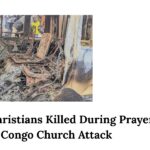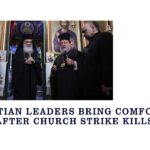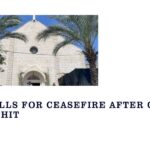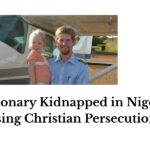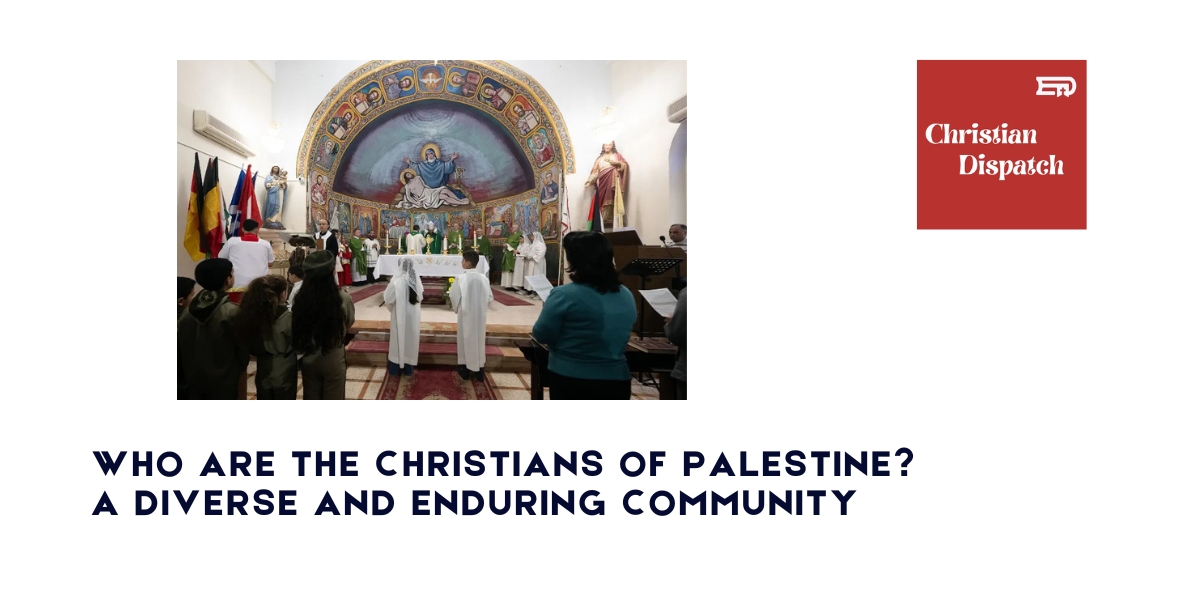
By Christian Dispatch Staff
July 21, 2025
When news broke of three deaths at Gaza’s Holy Family Church on July 17, many were surprised—not just by the tragedy, but by the presence of a Christian church in Gaza at all. The assumption that the Holy Land conflict involves only Jewish Israelis and Muslim Palestinians often overlooks a small but deeply rooted Christian community in the region.
A Living Witness in the Holy Land
Palestinian Christians, comprising roughly 1% of the population in the Palestinian territories (approximately 50,000 individuals), are heirs to one of the oldest Christian traditions in the world. The majority live in the West Bank, particularly in Bethlehem, Ramallah, and Jerusalem, while a smaller community of about 800–1,000 resides in Gaza. Their ancestors were among the first followers of Jesus Christ in the land where He lived, preached, and was crucified.
The Christian presence in the region predates Islam by centuries. By the 1st century, early Christian communities were established in Jerusalem, Bethlehem, and Gaza. By the 4th century, monastic life thrived in Gaza under figures like St. Hilarion, who founded one of the earliest monasteries in the region. Following the Islamic conquest in the 7th century, Christians adapted to new rulers by adopting the Arabic language and culture while preserving their faith. Over time, a distinct Palestinian Arab Christian identity emerged, blending national, cultural, and religious elements.
Today, Palestinian Christians maintain a strong connection to their heritage, often serving as custodians of sacred sites such as the Church of the Nativity in Bethlehem and the Church of the Holy Sepulchre in Jerusalem. Their presence underscores the Holy Land’s role as the cradle of Christianity.
A Community Scattered
War, displacement, and economic hardship have significantly reduced the Christian population in the region. The 1948 Arab-Israeli War, known to Palestinians as the Nakba (“catastrophe”), displaced many Christians, who fled or were expelled alongside their Muslim neighbors. Subsequent conflicts, including the 1967 Six-Day War and ongoing occupation, have further strained the community, leading to emigration driven by restricted access to jobs, education, and religious sites, as well as political instability.
Today, the global Palestinian Christian diaspora is significant, with communities in Lebanon, Jordan, the United States, Canada, Australia, and Latin America. Chile hosts the largest Palestinian diaspora outside the Middle East, with an estimated 500,000 people of Palestinian descent, many of whom are Christian. Cardinal Fernando Chomalí Garib, Archbishop of Santiago, is a prominent figure of Palestinian Christian descent, embodying the community’s global reach.
Many Churches, One Faith
Palestinian Christians are remarkably diverse, reflecting the rich tapestry of Christian traditions in the Holy Land. Approximately half belong to the Greek Orthodox Patriarchate of Jerusalem, one of the oldest Christian churches, which traces its roots to the apostolic era. Others are Catholics, divided between Latin Catholics, led by Cardinal Pierbattista Pizzaballa, the Latin Patriarch of Jerusalem, and Eastern Catholics, such as Melkites, Maronites, and Chaldeans, who practice ancient liturgical rites while remaining in communion with Rome.
The community also includes Oriental Orthodox Christians, such as Armenians, Syriacs, and Copts, whose traditions emphasize their ancient theological heritage. Protestant denominations, including Anglicans, Lutherans, and Baptists, are also present, often engaged in educational and social outreach through institutions like the Lutheran World Federation’s Augusta Victoria Hospital in Jerusalem.
Despite their theological diversity, Palestinian Christians often demonstrate remarkable unity. Shared cultural identity and the challenges of living in a conflict zone foster collaboration across denominations. For example, Christian schools, hospitals, and charities in the West Bank and Gaza serve both Christians and Muslims, promoting interfaith solidarity.
Unity Amid Conflict
This ecumenical spirit was evident after Israel’s military response to the October 7 attacks. Around 700 people, including Latin Catholics and Greek Orthodox Christians, sought refuge at Gaza’s Holy Family Church, a Latin Catholic parish in the Al-Zeitoun neighborhood. The church, part of the Patriarchate of Jerusalem, has long served as a sanctuary for Gaza’s Christians and Muslims alike during times of conflict. Tragically, the July 17 strike on the church compound claimed three lives, including both Catholic and Orthodox faithful, highlighting the shared vulnerability of these communities.
Palestinian Christians face unique challenges in the ongoing conflict. In Gaza, the small Christian community endures the same hardships as their Muslim neighbors, including bombardment, displacement, and limited access to food and medical care. In the West Bank, restrictions on movement, such as checkpoints and the separation wall, complicate access to holy sites and economic opportunities. Despite these difficulties, Palestinian Christians remain steadfast, often playing a disproportionate role in advocacy, education, and peacebuilding. Organizations like the Sabeel Ecumenical Liberation Theology Center, founded by Palestinian Anglican priest Rev. Naim Ateek, promote nonviolent resistance and interfaith dialogue.
Challenges and Resilience
The Christian population in the Palestinian territories has declined from roughly 10% in the early 20th century to 1% today, driven by emigration and lower birth rates compared to Muslim Palestinians. Economic pressures, lack of political progress, and the psychological toll of living under occupation contribute to this trend. In Gaza, the Christian community faces additional strain due to the blockade imposed by Israel and Egypt since 2007, which limits access to resources and opportunities.
Yet, Palestinian Christians remain resilient. They maintain vibrant cultural and religious traditions, such as the annual lighting of the Christmas tree in Bethlehem’s Manger Square, which draws global attention. Leaders like Vera Baboun, the first female mayor of Bethlehem (2012–2017), and organizations like the Bethlehem Bible College demonstrate the community’s commitment to education, leadership, and faith.
A Call for Recognition
Palestinian Christians are a reminder that the story of the Holy Land is not solely one of Jewish-Muslim tensions but a complex mosaic of faiths and identities. Their enduring presence testifies to a deep and sacred Christian heritage, one that continues to witness to Christ amid conflict. As global attention focuses on the region, their story calls for greater recognition and support, ensuring that this ancient community remains a living witness in the land of Christ’s birth.
“The Christian presence in the Holy Land is not a relic of the past—it is a living reality shaped by centuries of faith, hardship, and hope.”


